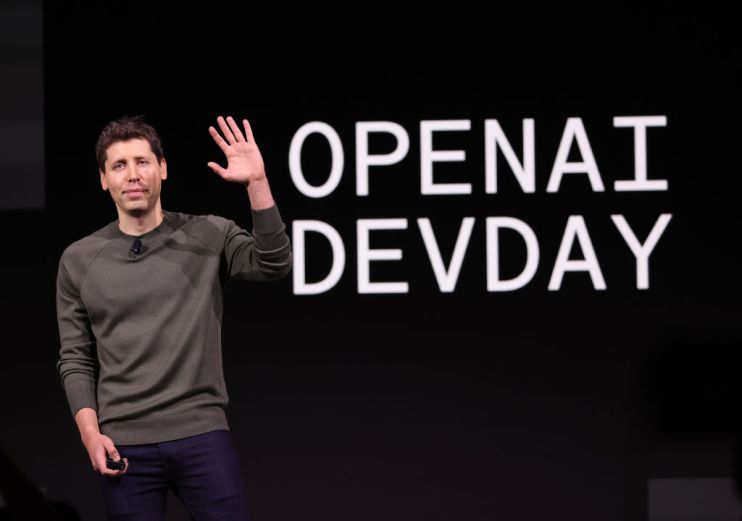‘Captain of industry? No I just answer the phones’: How the UK lost its superstar CEOs

While the US deploys superstar entrepreneurs like Sam Altman and Bill Gates to events like Davos, the best the UK can muster up is Jeremy Hunt and Sting, laments Simon Neville
Davos is supposed to be the ultimate playground for the rich and famous to rub shoulders with each other and feel mighty important as they make pronouncements from atop a mountain for the great unwashed below.
The World Economic Forum attracts politicians, business leaders and celebrities in equal measure, with this year’s line-up pulling in some serious players.
OpenAI boss Sam Altman, Microsoft founder Bill Gates and JP Morgan’s Jamie Dimon all made their predictions for the year.
And from the world of politics, guests had the views of Ukrainian President Volodymyr Zelenskyy and French President Emmanuel Macron to digest.
But noticeable for their absence were any business leaders of substance from the UK.
The best this country could muster was marmalade salesman-turned-chancellor Jeremy Hunt and Police frontman Sting (perhaps filling in for regular attendee Bono).
Admittedly, KPMG boss Jon Holt is a pretty big deal and he was there sharing a Davos stage with Hunt.
But it wasn’t clear whether he was there to keep happy one of the accountancy giant’s biggest clients – the UK government – or because he had something more substantial to say.
And therein lies the problem. The UK will never become Europe’s answer to Silicon Valley and a global business hub when we fail to produce or nurture any captains of industry.
I don’t even know who would be considered the UK’s answer to Sam Altman. Can you ever imagine a UK version of Altman getting sacked and staging a comeback, live-tweeting the entire event?
The UK used to have superstar bankers, equivalent to JP Morgan’s Dimon. We had Stuart Gulliver at HSBC or António Horta-Osório at Lloyds. Even Bob Diamond at Barclays could draw in a crowd. Today, I don’t think most people could tell you the views of Barclays’ current incumbent.
The London Stock Exchange can keep claiming the reason FTSE 100 companies don’t attract top talent is because pay levels need to be higher, whilst the government can blame poor productivity on its scapegoat bingo card.
But the truth is, we don’t have any business leaders left.
We used to have them. Sir Roger Carr at BAE Systems, Lord Stuart Rose at M&S, Sir Terry Leahy at Tesco, Lord John Browne at BP. These men would happily make pronouncements beyond their own businesses and took on the mantle of leaders.
They would put themselves forward for interview. They would make speeches in public. They would stick to their principles.
Today we have an entire C-suite class in the UK who follow the philosophy of Groucho Marx, who said: “Those are my principles and if you don’t like them… well, I have others.”
A compliance culture and fear of failure has set in so powerfully – re-enforced by advisors – that bosses now see there is nothing to be gained from stepping onto that stage.
Why should the boss of a FTSE 100 company take a slot at Davos knowing their multi-million pound salary and bonus will still be paid out regardless?
Why step up when they know the pension funds that populate their shareholder register are run by an industry who think “scrutiny” is a Greek island?
And why talk in public when the job of having a view can be outsourced, for a fee, to a trade body or communications professional?
I’m not sure who is at fault. In my old life as a journalist, I would typically blame the advisors for scaring clients half to death by telling them they are right to be afraid of the media.
And in my current berth as an advisor, I should be telling clients the fault lies with journalists who only ever want to catch executives out.
But, ultimately, the issue can only be changed by those in positions of power.
They must decide if they want to be leaders in name only, or truly embrace what it means to be one.
The benefits of embracing the former are appealing in the short term but, if Davos is anything to go by, the longer term consequences could be far more severe.